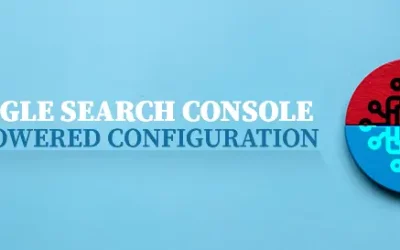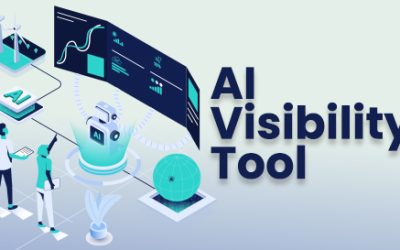Content marketing has become an essential component for businesses looking to engage and connect with their target audience in today’s fast-paced, digitally driven business scene. However, due to the rapid expansion of data and the demand for personalization, businesses now confront difficulties in efficiently producing, disseminating, and optimizing their content. This is where artificial intelligence (AI) plays a transforming role in content marketing. AI in content marketing has completely changed how businesses plan, produce, and distribute content. Businesses can gain important insights, automate tedious operations, and create content that is tailored to the requirements and interests of their target market by utilizing the power of AI. Partnering with a company outsourcing digital marketing services can help maximize efficiency.
Some Key Statistics on AI in Content Marketing
- 20% increase in marketing ROI – Companies implementing AI-driven content strategies (McKinsey’s Digital Marketing Report).
- 40% increase in average order value – Achieved by companies using AI-powered personalization compared to traditional, generic content.
- 83% higher engagement rates – Seen in AI-optimized content versus conventional content creation.
- 32% cost reduction in content production – Organizations report major efficiency gains after adopting AI content tools.
- Research time reduced by 70% with AI-powered content intelligence.
- First-draft generation is 45% faster using AI writing assistants.
- Revision cycles decreased by 55% through data-informed content creation.
- 41% higher conversion rates – Marketing campaigns using AI for content optimization (HubSpot analysis).
Different Ways AI Is Used in Content Marketing
- Conduct keyword analysis and clustering: The process of keyword research often begins with the generation of a list of keywords related to your niche or subject. It’s a labor-intensive, mostly manual process. With the use of AI tools for marketers, a big list of relevant keywords and clusters can be generated quickly, simplifying the content strategy plan, which can speed up the process. These keywords can then be grouped into pertinent topic clusters for your content strategy plan.
- Better content generation: The process of creating content has been substantially expedited through improved content generation and AI-powered solutions. To produce high-quality, pertinent, and interesting material, these tools make use of cutting-edge techniques like Machine Learning (ML) and Natural Language Processing (NLP). This not only saves time and money but also guarantees a steady stream of content that appeals to the intended audience.
- Distribution of tailored content: The ability of AI in content optimization to customize material for specific consumers is one of its most notable capabilities. For the purpose of understanding user behavior, preferences, and interactions, AI systems analyze enormous amounts of data. With the help of this insightful information, businesses can better target particular audience segments with content for a more individualized and interesting experience.
- Enhanced SEO techniques: AI is essential for making content search engine friendly. Artificial intelligence in digital marketing supports predictive analytics, keyword research, and search trend analysis. With the use of AI’s predictive analytics, marketers can forecast SEO trends, and adjust and improve their campaigns for increased discoverability.
- Curation and recommendation of content: Based on their prior interactions and preferences, AI algorithms are skilled at selecting and recommending material to consumers. Businesses may increase conversion rates by providing users with suggestions for relevant content that will keep them interested and encourage them to spend more time on their platforms.
- Using AI-powered tools to identify errors: In any industry, content accuracy is essential. However, as digital platforms have expanded, the volume of content has exponentially increased, making editors’ and proofreaders’ jobs more difficult. Tools with AI capabilities can help in this regard. With the aid of machine learning and natural language processing algorithms, these technologies are able to identify and indicate content accuracy errors. AI-powered technologies may swiftly and effectively assist content creators in making sure their work is free from spelling and grammar mistakes and factual inaccuracies. This not only speeds up the editing process but also raises the standard of the content as a whole, providing audiences with a positive impression.
- Comprehensive content performance analysis: Advanced analytics using AI can give content marketers profound insights into the performance of their material. These analytics tools evaluate user interactions, conversion rates, engagement metrics, and more, providing useful information to improve content strategy and provide better outcomes.
- Effective Chatbot customer interaction: Customer engagement has changed dramatically thanks to Chatbots, and virtual assistants driven by AI. These automated systems are capable of answering questions, giving out data, and helping customers move through the sales process in real time. This effectiveness improves consumer satisfaction and customer service, which helps to build a favorable perception of the brand.
- Improved visual and multimedia content: AI also has an impact on visual and multimedia material. AI algorithms are capable of creating, improving, and optimizing visual components like photos, films, and infographics, which increases the content’s overall appeal and engagement.
- Analytical predictions for future plans: Content marketers can make data-driven decisions for future strategies by utilizing AI’s predictive powers. AI algorithms foresee user behavior, market trends, and content performance. This shows how AI is transforming digital content strategies by keeping brands ahead of the curve.
- Voice search optimization with AI: As voice-activated devices like Amazon Echo and Google Home gain popularity, AI plays a significant role in optimizing content for voice search. AI algorithms analyze voice search data to understand common questions and inquiries, enabling businesses to produce content that effectively addresses user needs. AI can also enhance natural language understanding and use structured data for better voice search presentation optimization.
Examples of AI Content Marketing
eBay
Online auctions between consumers are what eBay is most famous for. It is one of the biggest online marketplaces for buying and selling. You can understand how challenging it may be to personalize and make each customer feel like an individual with billions of goods and millions of viewers. eBay developed customized email subject lines for each customer using AI content marketing techniques. eBay created hundreds of automatically written headlines for client segments based on their interests using a program called Phrasee. Phrasee combined eBay’s brand voice with the best email headline strategies that could be tested at scale and further enhanced to connect with customers. It did this using natural language algorithms and learning features.
Dell
Technology tycoon Dell was searching for more methods to interact with customers and offer a customized experience that increased sales. Marketing team employees have been writing and personalizing emails for customers for years. However, everything changed as they teamed up with an AI team. The AI technique made it possible to divide Dell’s huge customer base into targeted audience segments with distinct product interests. To increase email clickthrough rates and boost conversion rates, the AI technology enhanced both the emails’ content and the photos that were included in it.
The digital world has been completely transformed by the integration of AI and content marketing. By enhancing user engagement, optimizing SEO strategies, and delivering actionable data for improved strategies, it has elevated content creation and personalization to new levels. The impact of AI on audience engagement in content marketing is undeniable, with businesses seeing measurable improvements across ROI, conversions, and customer relationships. The relationship between AI and content marketing will only grow stronger as technology advances, changing how companies interact and relate to their customers online. Businesses can achieve these results more effectively by combining AI adoption with outsourcing digital marketing services, ensuring scalable and sustainable success.
Maximize the impact of AI in content marketing.
Start outsourcing digital marketing services today.




